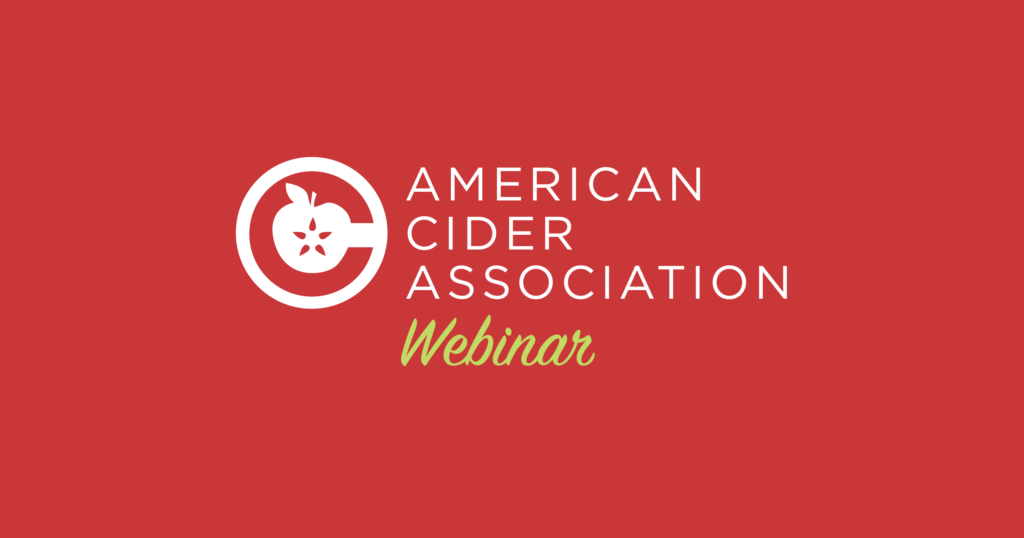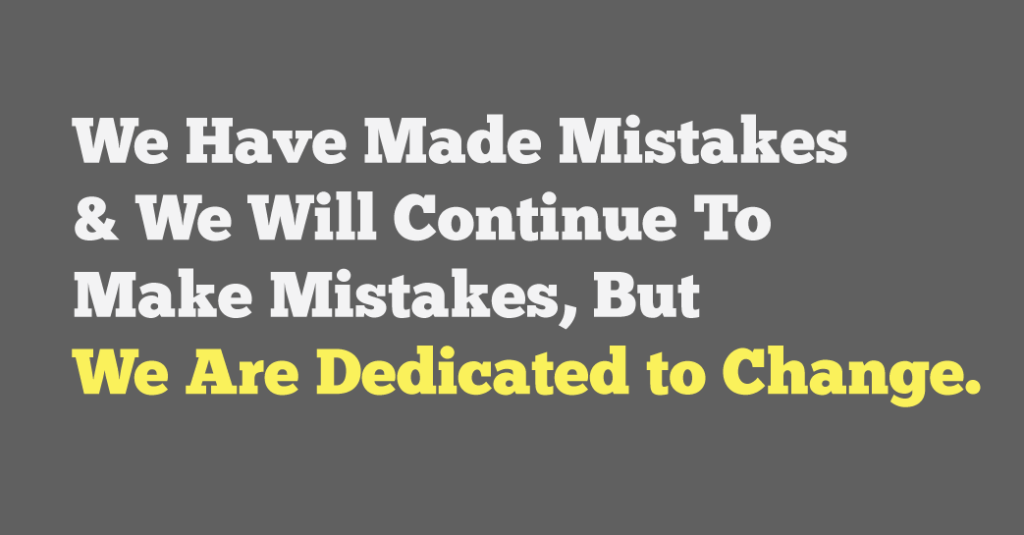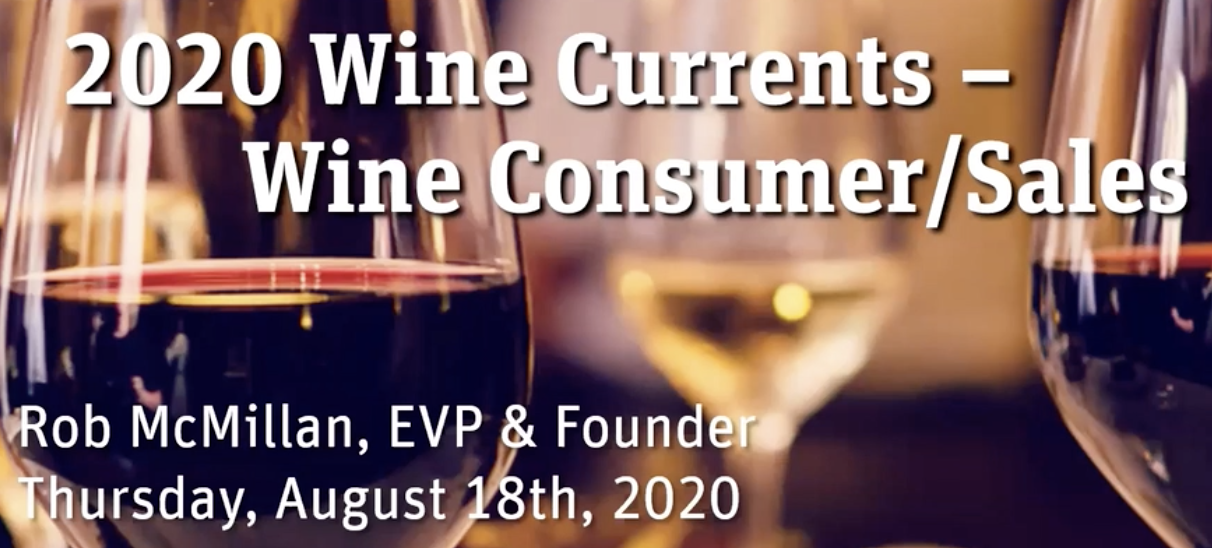Posts by Michelle McGrath
Q2 Nielsen Reports Ready For Download
One of the perks of combining our buying power as an association is that we can share valuable insights from Nielsen with you, our members.
You can now download our custom Q2 reports. In this data packet you will be able to access:
- Off-Premise Micro-Reports broken down for packaging type, flavor, and region–14 states and 6 regional outlooks. Available in both a 12-week and a 52-week outlook.
- Off-Premise Macro-Reports for Beer, FMBs and Cider. Available in both a 12-week and a 52-week outlook.
- On-Premise Reports for 6 metro markets.
- Nielsen PPT slide decks with charts, data visualization and insights on the cider category’s recent performance in both On- and Off-Premise.
- Bonus this quarter: Hard Seltzer off-premise report.
Here is an excerpt from a recent Nielsen survey about current overall consumer sentiment:
CONSUMER SENTIMENT REPORT SUMMARY BY NIELSEN
“Here are some high-level findings from a Nielsen survey of 18K+ consumers, fielded July 1-8, 2020.
- Since June, we have started to see some consistent trends not only for off premise alcohol, but also across many consumer good categories. That comes to life in consumer sentiment as well. 60% of households expect their routines to remain altered for at least the next 4 months
- Nielsen has shared insights in the past in several forms about how premiumization within off premise alcohol isn’t slowing down, and has in fact accelerated during COVID weeks. However, when it comes to total consumer goods, we are starting to see more cautious consumer sentiment in relation to spending. Approximately 4 in 10 (42%) of households say they are watching what they spend as a result of COVID.
- The homebody economy continues. When asked what % of time households eat meals or snacks at home versus outside of home, 39% of households said they ate 100% of their meals and snacks at home. An equal amount (39%) said they ate outside of their home only 10% of the time. As a comparison, when asked what their habits were prior to COVID, only 12% said they ate all of their meals at home.
- When asked what their plans are for the coming months, close to 1 in 3 households (28%) said they plan to eat all of their meals at home. That of course was lower for younger consumers age 21-34, and much higher for consumers age 65+.
- What about consumer plans if economic conditions get worse (recession and/or inflation)? When asked about things they would do to save money when shopping for beer or wine, 39% said they won’t change how they shop for it. However, nearly ¼ said they would buy less. That’s a slightly different story for households with lower income (<$30K), which said they would be more likely to stop buying it all together.”
Q2 2020 Nielsen Reports for Our Members
This content is for members only.
If you were a member and are now seeing this message, please Renew your membership to continue.
8/25/20 Webinar Recording: State of Direct to Consumer-the Wine Perspective
This content is for members only.
If you were a member and are now seeing this message, please Renew your membership to continue.
CiderCon® 2021 Will Be a Hybrid Event
Is CiderCon® 2021 happening? CiderCon® 2021 will take place whether we are in Chicago or in our online community!
When can I register? Registration for CiderCon® will open later this year to allow for event updates in response to changes with the current Pandemic. Our current target is October 15.
What will CiderCon® be like next year? We do know that CiderCon® is likely to have a mixture of in-person and virtual content no matter what, and that those virtual opportunities will be innovative and exciting.
If we are able to safely gather in Chicago in early February, we absolutely will! Chicago is now in Phase Four of the city’s reopening plan. It’s certain there will be some different protocols from CiderCons® past, but the networking and information sharing will continue.
Much of what we can do will rely on the state of Illinois, the city of Chicago, the Hilton and the virus itself. We’ve been meeting with the Hilton regularly, and are very impressed with their protocols. However, the city of Chicago currently has travel restrictions in place for nearly two-dozen states, requiring 14-day quarantine to enter the city.
Will there be a trade show? Similar to our educational offerings, we will be looking to offer in-person and virtual opportunities for CiderCon® participants to get to know our amazing industry vendors and allied trade members. If you’re interested in reaching our cidery members through our trade show, please get in touch with our coordinator, Ellen.
Should I make travel arrangements? If you have an arrangement that is refundable, you can plan to travel to Chicago for February 2-5, 2021. We will let you know when the hotel block opens.
We are looking forward to making more announcements about our exciting virtual educational & networking sessions that will be a part of CiderCon® 2021.
Annual Membership Survey Time!
We are working to finish a new strategic plan for the American Cider Association, and it’s very important to us that we hear from America’s cideries. You can be a part of guiding our programming to grow and sustain a diverse and successful cider industry by completing our affiliate membership survey.
There are two versions of the survey. One version is for owners/managers and includes benchmarking questions specific to HR and production. That version has been emailed to the main points of contact listed for member accounts.
There is also a version of the survey meant to collect input from non-owners/managers. If you are in the cider industry at all (apple grower, bar tender, keg producer, cider blogger, you name it!), you can take our survey and provide useful feedback.
The survey is completely anonymous. We thank you in advance for sharing with us!
6/23/20 Webinar Recording: Intro to Managing Distributor Relationships
This content is for members only.
If you were a member and are now seeing this message, please Renew your membership to continue.
6/18/20 Recorded Webinar of PPP Loan Forgiveness Updates
This content is for members only.
If you were a member and are now seeing this message, please Renew your membership to continue.
JUNE WEBINARS

We are working to bring our members relevant virtual content during this time. Our webinars are free if viewed live, and they are always accessible to our active members as recordings on our member page after logging in with your account.
JUNE 18: New Developments in PPP Loan Forgiveness
Speakers: Richard Lyons, Partner and Co-Chair of Wendel Rosen’s Food and Beverage practice and Kirk Faris, CPA and Tax Senior Manager at Moss Adams
SUMMARY: This webinar will go over the PPP loan, and in particular the new laws and updates that came into effect over the past few weeks, as well as related topics:
–Determining and maximizing PPP loan forgiveness, including what expenditures “count”, applicable period and employee considerations
–Minimizing and deferring expenses, whether you received a PPP loan or not: tax credits, raising capital, SBA loans, etc.
–Other financial and business considerations
JUNE 23: An Introduction to Managing Distributor Relationships
Speaker: Julie Rhodes, business coach and owner of Not Your Hobby Marketing Solutions
SUMMARY: This webinar will most benefit new cideries, those expanding their distributor partnerships for the first time, and brands that would like to improve their relationship with their current wholesale partners. A distribution contract is a partnership, which should be mutually beneficial for both parties. In this webinar we will explore 6 actionable ways that you can be a proactive supplier partner with your wholesaler, so that you can improve the profitability of your relationship. By the end of this webinar, you should walk away with an understanding of how to effectively partner with your distributor to grow your cider brand, increase sales and brand awareness, and foster a mutually beneficial business relationship for long term growth.

Have a webinar topic suggestion? Reach out.

The American Cider Association (ACA) has been quiet on social media for the last two weeks. We’ve been listening, learning, and working on a sincere, actionable response. When it comes to standing up for Black, Indigenous, and People of Color (BIPOC) we have made critical mistakes in the past and we have done harm with our silence. We recognize that we have a lot to learn, that we will make mistakes while we are learning, and that we will grow from those mistakes. We recognize that our ability to write an email like this comes from a place of privilege.
The ACA believes Black Lives Matter. We acknowledge the injustices faced by Black individuals and we stand in solidarity with those raising their voice for change. Our society upholds white privilege in unjust ways and the cider industry and the American Cider Association are dominated by white voices. We have long felt that failure to support BIPOC in the beverage and hospitality industry falls on us as an association, but we have not taken meaningful action on those feelings. Today, it’s too easy for us to feel accomplished with a donation or a hashtag. Instead we are challenging ourselves to invest in lasting change for our organization and our industry. Our commitment to antiracism in the cider industry starts here:
- ACA commits to sending out a monthly newsletter with antiracism resources to our members for the next 12 months.
- ACA commits to participate in antibias and diversity training at the board and staff level within the next six months.
- ACA commits to additional seminars and discussions at CiderCon 2021 around diversity, equity and inclusion.
- ACA commits to not promoting cideries that use racist language or imagery.
We also challenge our members to join us in creating this needed change throughout our industry. You can actively take on this challenge in your lives and businesses in the following ways.
- Collaborate with Black-owned businesses and hire Black employees and contractors. Many communities have business directories you can use to identify Black-owned companies.
- Commit to providing antiracism and antibias training to your cidery’s employees, no matter their role. If you need help finding such resources, let us know.
- Become a patron of a black-led educational platform and participate in the readings, resources and challenges.
As part of our commitment to providing antiracism resources to our members, we will share some of the tools we mention above with our members in the coming months.
As a cider community, we must address the history that has led to a food and beverage industry that rewards racist ideals, and we need to learn how to undo those systems. It’s not easy work, but together we can move toward an equitable and inclusive cider industry that directly recognizes the contributions of Black individuals and celebrates the racial diversity in this country.
Please join us in this work moving forward. Hold us accountable, ask questions, demand transparency, and join us in doing the work.
We thank our Diversity Committee for their support in helping us do this difficult work. Learn more about our committees and our organizational statement of intent regarding Diversity, Equity & Inclusion for the cider industry.
Congress Passes PPP Critical Improvements

Today, Congress passed a bill that aims to address concerns over the structure of the federal Paycheck Protection Program (PPP). The program has been a bittersweet solution for cideries who have had to consider laying off staff due to state-mandated tasting room closures. Yes, it provided needed funds to pay employees. But the restrictions on using those funds without repayment didn’t quite make sense in our pandemic world. Here is how the reform bill headed to the President’s desk changes the program:
- The original PPP program required the loan funds to be spent within 8 weeks of receiving them. Today Congress expanded that period to 24 weeks.
- The original PPP program required that 75% of the funds be used for payroll. Today Congress reduced that requirement to 60%.
We thank our members for letting us know the challenges you faced with the PPP program. We’ve been able to share that feedback with congressional offices who in turn utilized your stories and others to fix the program.
Read more: Senate approves House-passed Paycheck Protection Program reform bill






